Tesla EVs record minimal range loss in sizzling conditions
With heat wave after heat wave hitting all parts of our planet, what better time to talk about EV range? Sweltering weather conditions can send the range of many electric vehicles (EVs) into a tailspin. But Tesla's EVs? Not so much. In fact, according to a study by Recurrent, Tesla EVs show minimal range loss during scorching temperatures, seemingly shrugging off the heat that leaves other EVs panting.
Let's talk shop here. A vehicle's estimated range — how far it can travel on a single charge — is often at the mercy of various factors. For EVs, the temperature is a big one. Extreme cold and heat can send your EV's range into a nosedive. But, somehow, Tesla seems to be making light work of these hot spells.



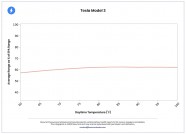
Tesla batteries perform well in extreme temperatures - source RecurrentAuto
In the study, Recurrent took on the task of analyzing the battery readings of 7,500 vehicles from multiple brands, including Chevrolet, Hyundai, and Ford, among others. What was the upshot? While some models showed increased range before losing it, others showed sharp decreases. But Tesla — and no, we're not in the business of writing Tesla love letters — was the clear standout. The Tesla range took the heat in stride, with the least amount of range loss under these conditions.
The magic sauce in this Tesla formula? Their use of heat pumps over the typical automotive air cooling systems. It seems that traditional aircon and heaters are better at cooling in the summer and heating in the winter, but these advantages come at a cost. More components (far less efficient as well) kick into gear when the legacy equipment activates, which can seriously dent your range. Tesla's heat pumps appear to have outperformed its peers in this regard.
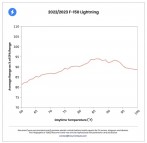
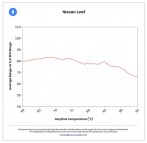
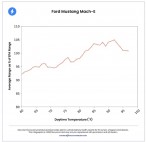
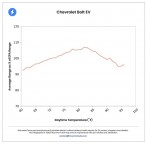
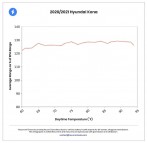
Other brands did OK but nowhere near as well as Tesla - source RecurrentAuto
Before we crown Tesla the king of hot weather, let's introduce a note of caution. They're not invincible. The latest heat wave across the Southern and Western US did impact Tesla EV's range, as reported by Automotive News. Plus, there's the issue of charging during heat waves, as if we needed another problem. Texas and California asked EV owners to limit charging their vehicles during the recent heat wave. Batteries don't like the heat any more than we do. The harder the cooling system has to work, the more electricity it uses, and that's more heat for the circuits.
Greg Less, technical director of the University of Michigan Battery Lab, explains, "Once you're above 104°F, the passive emission layer on the anode starts to break down, causing the liquid electrolyte to be consumed, which shortens the battery's life."
Is owning an EV a cakewalk? Not exactly. It comes with its fair share of challenges. But there are ways to keep your battery happy. Using a slow charger, avoiding charging up to 100%, and steering clear of extreme temperatures can help - that means keeping your precious EV in the shade if possible. Because, after all, an EV is just like us. It likes to stay cool.
Reader comments
- LogiR
- 6v0
How would Tesla fake the numbers? The numbers were given by Recurrent doing a testing of 7500 cars. Did you read the article or even comprehend it? How would Tesla company fake the numbers when not involved in running the tests?
- Dgg
- g4j
Fool me twice. Shame on me... Tesla fakes these. So let me know how far it really went





Facebook
Twitter
Instagram
RSS
Settings
Log in I forgot my password Sign up